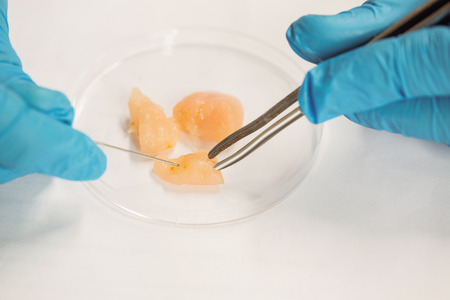
Salmonella outbreaks have once again become a hot topic of discussion in the food processing industry. Recently, the USDA introduced new testing protocols designed to minimize the risk of outbreaks in poultry operations. Meanwhile, grocery store chain Whole Foods has been forced to issue recalls due to possible salmonella contamination in raw macadamia nuts. Today salmonella poses as great a health risk as ever, but if a group of Researchers at the University of Nevada, Reno have their way, salmonella contamination in meat products could soon be a thing of the past.
Assistant Professor Amilton de Mello and his team at the university’s College of Agriculture, Biotechnology and Natural Resources recently presented their findings at the International American Meat Science Association’s annual conference. The researchers found that by treating meat products with bacteria-hunting viruses called bacteriophages, they could reduce salmonella content in the meat by 90 percent. Scientists have used bacteriophages in antibiotic drugs for decades, but this is the first time they’ve used them to control pathogens in meat products. The team tested their technique successfully on four different types of salmonella on ground beef, pork and poultry. While the viruses can effectively destroy salmonella, they are harmless to humans.
“On the final ground meat product, there was a 10-fold decrease of salmonella,” de Mello said in a statement. “The results are very encouraging and we’re hoping this can be adopted by the meat industry to increase food safety.”
It’s a remarkably straightforward solution to a complex problem that could have hugely positive implications for food safety in the future.
Stay tuned for more updates from the Cackle Coop!


